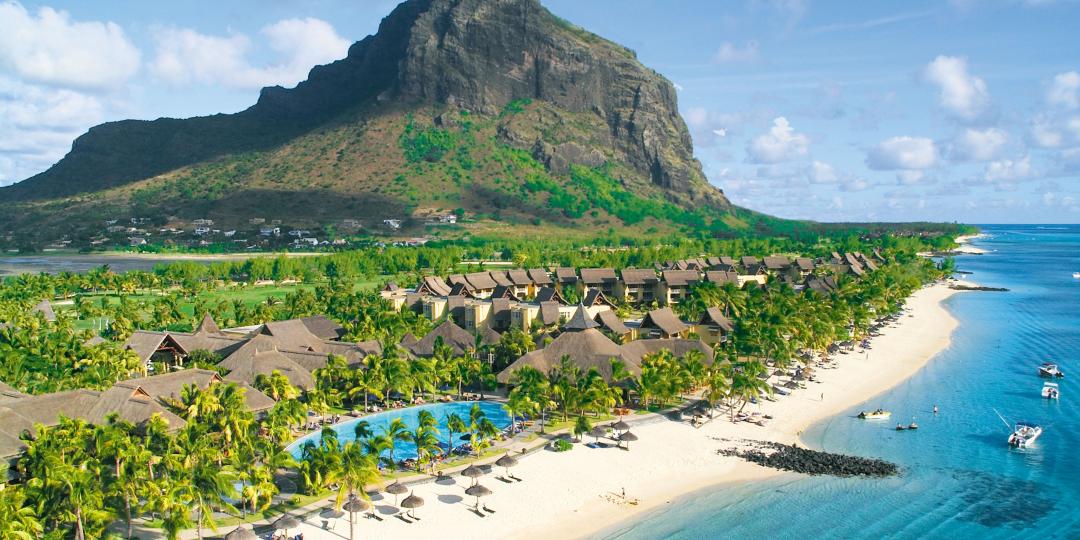Mauritius’s hotel outlook is strong. This is according to the PricewaterhouseCoopers (PwC) report, ‘Hotels outlook: 2018-2022: South Africa – Nigeria – Mauritius – Kenya – Tanzania’.
In the report, PwC says, of the five countries reviewed (including South Africa, Nigeria, Kenya and Tanzania), Mauritius has had the strongest hotel market for a number of years. In 2017, the Indian Ocean island reported a 12.7% increase in room revenue, adding to a cumulative growth of 38% since 2014.
PwC also notes that Mauritius has sustained a growing economy for a number of years, reporting an annual expansion in GDP of 3.8% during the last two years. However, high inflation rates could begin to affect the economy over the coming year. PwC expects average inflation rates of 4% to make Mauritius a more expensive destination for tourists.
Tourist arrivals over the last four years have continued to grow, with around 300 000 more visitors compounded since 2014. The strongest growth came from the European market, with France leading the pack at 20% of total arrivals. Between 2016 and 2017, all major European markets saw growth for arrivals with France, United Kingdom and Germany topping the list with over 100 000 arrivals each. South African tourists also showed growth, coming in at 112 129 arrivals for 2017. Asia-Pacific and North American markets also increased between 2018 and 2017, a number of countries growing by more than 15% year-on-year.
PwC notes: “The country is targeting the cruise market with the objective of becoming a ‘preferred fly/cruise gateway’ to the Indian Ocean, and intends to expand its airport facilities to support a growing tourism market.” Additionally, there has been a drive towards creating ‘Beach & Bush’ holidays in combination with countries in mainland Africa, including Kenya and South Africa. Mauritius is also becoming increasingly popular as a wedding destination.
To this end, PwC points to increased air access to the island from Africa. In June, Kenya Airways and Air Mauritius extended their codeshare, while Kenya Airways also announced new routes to Mauritius to complement the codeshare.
PwC predicts growth in room rates to continue, foreseeing an 8.8% increase in room revenue for 2018. Over the projected five years, PwC sees total hotel revenue increasing from the current €739 million in 2017 to €1 billion by 2022.

Average Room Rates (€). Credit: PricewaterhouseCoopers LLP, Wilkofsky Gruen Associates.
Mauritius currently host 114 hotels, offering 13 330 beds a night. PwC projects this will grow marginally by 0.8% compounded annually, taking available bed nights by 2022 to 14 835. In late 2015, the government lifted an 18-month moratorium on new hotels, which has led to a small increase in development. Mauritius tops the list for hotel occupancy rates with a consistently high rate. Since 2017, occupancy has been above 75% and this is expected to increase to 79.8% by 2022.

Occupancy Rates. Credit: PricewaterhouseCoopers LLP, Wilkofsky Gruen Associates.
Comparatively, only a few major international hotel brands have plans to build in Mauritius over the next five years. According to the report: “Anantara Le Chaland Resort should open a 164-room beachfront hotel mid-2019. Marriott announced plans to introduce its Aloft brand in Port Louis in 2022 through the conversion of an office building into a 150-room hotel. A Park Inn by Radisson Mauritius has also been announced for 2020, and Avani and Sheraton hotels are planned for 2021 and 2022, respectively.”
PwC believes that Mauritius’s key growth area will be five-star hotels. “We expect guest nights for three- and four-star hotels to be flat during the forecast period, as growth in the market will be centred in five-star hotels.” Room revenue from the five-star sector is projected to grow to €354 million by 2022.

Average room rates for five-star hotels (€). Credit: PricewaterhouseCoopers LLP, Wilkofsky Gruen Associates.























